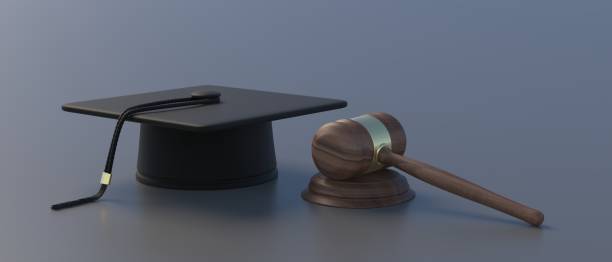
The Student & the Visitor
Part II
Last week we started to explore a local case in which a student’s PhD thesis was rejected in 2014, having first submitted the thesis in 2011. Her thesis was not entirely bad, and the university indicated it was good enough to earn her an MPhil (Master of Philosophy) but not a PhD (Doctor of Philosophy). The student was not satisfied with the university’s decision and made use of all the university’s internal appeal systems. Her last option was the Visitor, Her Majesty Queen Elizabeth II, her Heirs and Successors, who were appointed under the Royal Charter which established the university.
Part 1 outlined the efforts of the student’s attorney-at-law to get the Visitor to resolve her issue with the university. The student’s attorney-at-law made the first request in July 2014, and the Visitor eventually relied on her power to delegate the role in 2017, and appointed Justice Harrison (retired). Before resolving the student’s case, Justice Harrison passed on.
In May 2019 a new Visitor, Justice Nelson, was appointed by the university’s Council, under amendments to the Royal Charter which were approved by Her Majesty Queen Elizabeth II. These amendments were important for two key reasons. The 1st one being, the university’s Council now had the authority to appoint a Visitor from the region. The 2nd one was the catch I referred to in Part 1.
The student’s case remained unresolved and the student decided to make use of our regular court system. The court’s decision was not about whether her work was good enough to earn the PhD. The Visitor has the exclusive right to rule on disputes that arise from the university’s internal rules/laws. This means only the Visitor could rule on issues regarding the rejection of the student’s PhD thesis.
Court’s in Session: Student vs university
So, what was the court case about?
The student alleged that the university breached her constitutional right to a fair hearing in a reasonable time. How did this breach occur? For the student, the university’s continued use of the inefficient and dysfunctional process involving the Visitor amounted to the university breaching the right.
The student’s view was that the university’s Council should have taken steps to amend the Royal Charter when it was clear that the Queen/Visitor was not going to address the case. Especially since there were 5 other students with the issue and this was an amendment that could have been made with the approval of the Queen/Visitor.
The Court of Appeal did acknowledge that there was a process by which the amendment could have been made. For the Court of Appeal, resolving this issue was not important to the appeal itself and this issue had not been fully explored at the Supreme Court. Do you think the university should have the made change before the student experienced the lengthy delay?
The Court of Appeal also understood the student’s complaint to be that the university failed to ensure that the process concerning the Visitor worked efficiently, and that this failure also breached her right to a fair hearing in a reasonable time.
You might be thinking this seems simple; the student’s constitutional right was either breached or it was not and the Court could simply give its ruling. Not quite. Generally, before approaching the Supreme Court for a remedy when a human right has been, or is likely to be breached, you need to be sure that an alternative adequate remedy is not available. In this case, the Court of Appeal decided that there was an alternative adequate remedy.
The alternative adequate remedy
The Court of Appeal decided that the student could have obtained a court order that compelled the Visitor to resolve the case. The university could not compel the Visitor to hear the case, since the Visitor is considered independent of, and separate from the university.
Knowing who to sue
Ensuring you have sued the correct person is critical. In this case, the Court of Appeal decided that since the Visitor is independent of, and separate from the university, the delay in hearing the case was not the university’s fault. This meant that the student had incorrectly sued the university and should have sued the Visitor instead. The student would not be suing the Queen in her personal capacity but as the Visitor/Her Majesty in Council.
Why didn’t Justice Nelson hear her case?
The catch!
The amendments prevented Justice Nelson from hearing any of the cases which existed before his appointment. This means, when Justice Harrison passed, the authority to hear the student’s case reverted to the Queen. The Queen must either hear the student’s case, or delegate the role.
Essentially, the student was now back in the position she was before either Justice Nelson, or Harrison was appointed.
Having tried since 2014 to get the Visitor/Queen to hear your case what would you do? Would you abandon your dream of earning the PhD, or go to a different institution?
Hopefully the student does not consider her efforts a total loss since her case has increased the awareness of the process.
Until next time, stay safe.
Disclaimer by the author: Nothing in this article is to be taken as legal advice. You should consult an attorney regarding your specific case. All liability with respect to actions taken or not taken based on the contents of this article are hereby expressly disclaimed.
